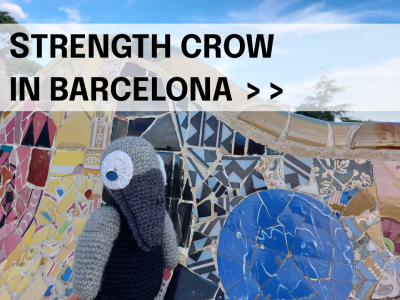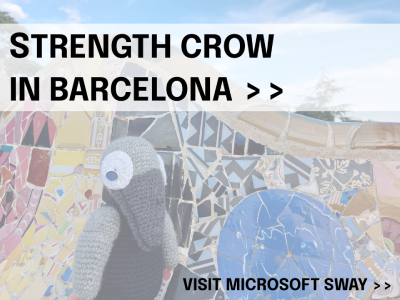Erasmus+ : Mobility of school staff

Introduction
With the Erasmus+ programme, we want to assure ourselves of the European dimension as a European school. In 2019, together with some colleagues from primary and secondary school, we noticed that there was no Erasmus+ programme running at our school yet. As the oldest European school, we would like to play a pioneering role and thought it was important to launch this programme.
We believe in the need for lifelong learning. We are never too old to learn, and continuing education helps to keep our minds sharp and off the beaten track. We reach out to schools all over Europe and expand our horizons. While networking, we promote European schools and our educational system, and at the same time we learn from other systems and schools. We open our eyes and minds.
Through Erasmus+, we succeed in giving everyone in our school community the opportunity to immerse themselves for a week in a particular theme, in a context that is unfamiliar to us. We step out, leave our comfort zone and renew our view of the educational field and of the world.
In our first project, launched in 2020, we worked on inclusive education. Forty staff members enjoyed both organised courses and job-shadowing assignments. We formed mixed teams, which also increased cohesion between our primary and secondary departments. In the meantime, we have a second project running. The theme is again inclusion, but combined this time with well-being and digital competences. Furthermore, we are currently working on the accreditation of our school, so that we will be able to jump on the Erasmus+ bandwagon for the next seven years. In the future, we also hope to realise projects with pupils.
We firmly believe that Erasmus+ will benefit our entire school community.
Enjoy reading our Erasmus+ page!
The Erasmus+ team
Erasmus+ Team
- For all your questions : LIST-LUX-PRI-ERASMUS-PLUS@eursc.eu
- Primary
- Thierry Lallemand : thierry.lallemand@teacher.eursc.eu
- Maria Méteau : maria.meteau@teacher.eursc.eu
- Nathalie José : lux-assistant-deputy-director-nursery-and-primary-cycle@eursc.eu
- Florence Delenclos : florence.delenclos@eursc.eu
- Secondary
- Anna Kucharska : anna.kucharska@teacher.eursc.eu
- Magdalena Rodzinka : magdalena.rodzinka@teacher.eursc.eu
- Niko De Rijcke : nikolaas.de-rijcke@teacher.eursc.eu
- Pierre Clarembeau : pierre.clarembeau@eursc.eu
- Administration
- Virginie Venet : LUX-ERASMUS-PLUS@eursc.eu
-
-
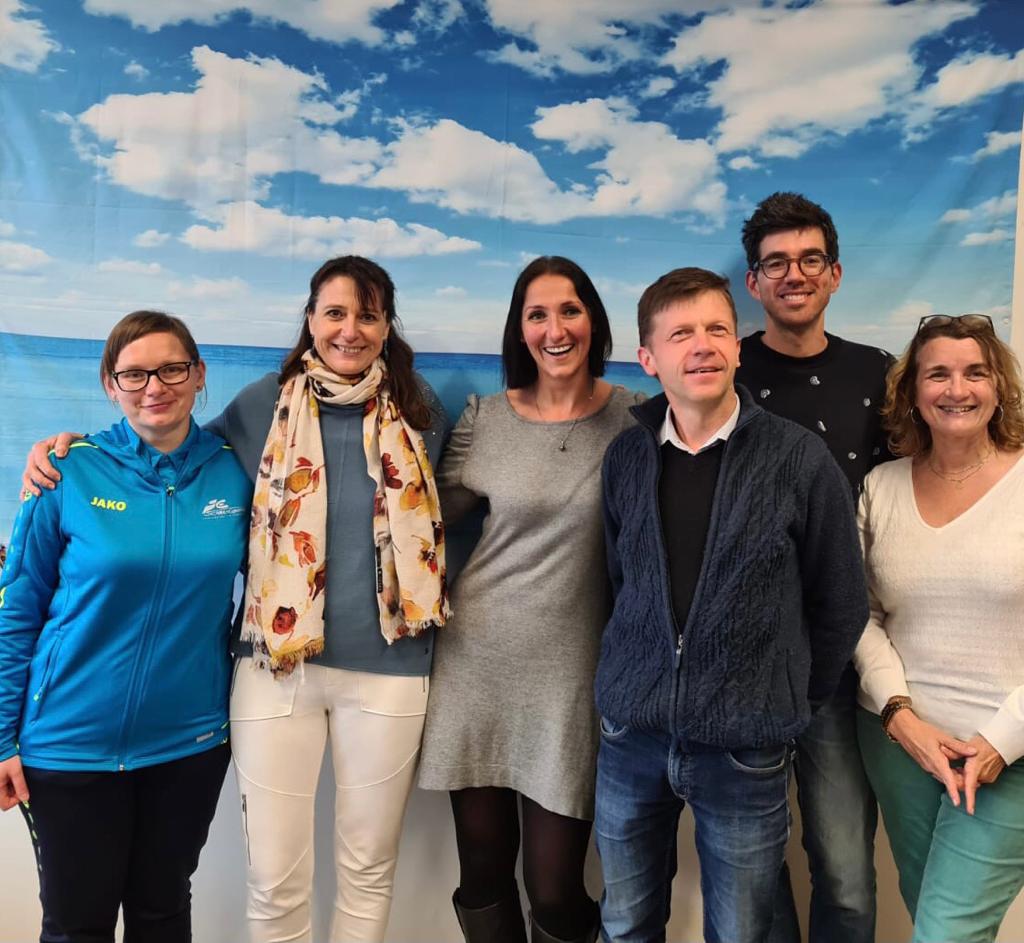
Erasmus+ Projects
2020 – 2022: Towards an inclusive European School
The vocation of the European School Lux-1 is to provide a multilingual and multicultural general education to children in nursery, primary and secondary education. The inclusion of pupils from all over Europe in their diversity of cultural, linguistic and learner profiles is not an option but the core of our educational work.
Here are some goals in our annual plan which confirm the importance of working on the theme of inclusion and the great value of having access to programmes such as Erasmus+ :
- Encouraging teachers to share resources and models of good practice –
- Strengthen differentiation of instruction to meet the different needs of students –
- Encourage teacher training – Enhancing student well-being –
- Intensive support: strengthening contacts between the school and specialists –
- Cooperate with external partners
Here are the six objectives we have set ourselves:
- To update and strengthen the concept of inclusive schooling within Lux 1 and the European schools in general.
- Recognising the work of teachers, welcoming and supporting them and developing accessible training opportunities.
- Better welcoming and involvement of parents.
- To better educate pupils in their “special needs”, plurilingual and multicultural dimensions.
- Developing an educational community around pupils with special needs with all school stakeholders.
- Preparing inclusive pathways with a view to the future autonomy of pupils, better monitoring them and evaluating the quality of actions. Disseminate good practices.
In agreement with the management, the steering committee therefore set the number of mobilities at 20 participants per year, making a total of 40 mobilities over the duration of the project. We wished to involve all the staff in connection with the pupils with special needs, whether it be the managerial team, the psycho-medical team, the teachers, the educational counsellors or the assistants and this as much at the level of the nursery, primary or secondary school.
We will organize the activities around two types of internships related to inclusion issues: structured internships and job-shadowings.
This Erasmus+ project will first and foremost enable us to strengthen the well-being and autonomy of pupils. The benefits linked to these internships will also further develop the philosophy of inclusion in our school. Participants will be able to deepen their pedagogical skills. The benefits of these courses will encourage the exchange of practices and pedagogical tools between colleagues. Local Luxembourg partners such as SCAP (Service de Consultation et d’Aide pour troubles de l’Attention, de la Perception et du développement Psychomoteur), IFEN (Institut de Formation de l’Education nationale), Competence Centres will directly benefit from all the experience gained through this Erasmus project and we hope that Luxembourg schools and the different European schools will be able to benefit from our acquired competences.
The link with the families is of paramount importance to us and is deeply linked to the learning process of pupils with special needs. Improving communication and building bonds of trust are one of the main objectives of this Erasmus+ project on inclusion.
2022 – 2024: Well-being and Digitalization
Here are some goals we have set ourselves:
- Prepare inclusive pathways, particularly in the reception and support of children with autistic disorders.
- Improve the preparation of staff and students for the various scenarios requiring the use of new digital tools and platforms.
- Provide vulnerable staff and students with a caring environment in which they can flourish.
- Adopt, through job-shadowing, an international perspective and a cross-understanding of the implications, possible reactions and solutions to the new situations caused by the pandemic.
- Better respond to the different needs of each individual, develop pedagogical differentiation.
- Familiarize all educational staff with the European framework of 8 key competencies. To use this framework to take a step back from their own practices.
This ERASMUS+ project will first and foremost enable us to strengthen the well-being and autonomy of the pupils. The benefits of these placements will also develop the philosophy of inclusion in our school. Participants will be able to deepen their pedagogical skills. The benefits of these courses will encourage the exchange of practices and tools between colleagues. Local Luxembourg partners such as SCAP (Service de Consultation et d’Aide pour troubles de l’Attention, de la Perception et du développement Psychomoteur), IFEN (Institut de Formation de l’Education nationale), “Centre de compétences” will directly benefit from all the experience gained through this ERASMUS project and we hope that Luxembourg schools and the different European Schools will be able to benefit from our acquired competences. The link with families is of paramount importance to us and is deeply linked to the learning process of pupils with special needs. Improving communication and building trust is one of the key objectives of this ERASMUS+ project on inclusion.
Participants' feedback and experiences
Inclusion (2020-2022)
Cyprus
I went to Nicosia in Cyprus to learn more about Inclusive education and Music strategies. Besides me, there were four teachers from Rumania, four teachers from Estonia, one teacher from Latvia who were on this Erasmus+ trip. The Music teacher who held the course is from Cyprus and is running a musicschool in Nicosia and that’s where the course was held. We practiced team activities and music in different ways. We talked about the importance of music and how we as teachers, especilly teachers in Nursery, can use music, songs and rhythms in our daily teaching activities. We also discussed diverse ways to create an inclusive teaching environment. We all went out one evening and had a walking tour around the old town of Nicosia and had dinner at a restaurant with nice traditional food.
Maria Ekenberg
Ile de la Réunion
Ile de la Réunion, l’île intense… this is how the French island in the Indian Ocean is also called. Flying there for an Erasmus + training about inclusive learning approaches and non-formal learning, we would soon discover the meaning of this second name of Reunion Island, the intense island.
Fourteen teachers from Sweden, Poland, Germany, Lithuania and Luxembourg came together and were coached by two Roumanian trainers in how to motivate and empower and include students, especially when they have learning difficulties or less opportunities due to their home situation. Intercultural values, stereotypes and prejudices are often interfering and have to be considered. The participants experienced this in a playful and creative way. How to use encouraging communication and educational competences are two more aspects we worked on in order to make our students feel stronger and be more confident.
The most heartwarming part of our stay on Reunion Island was the exchange and all the conversations we had with the other participants. We had the opportunity to learn a lot about their countries, school systems, traditions and also to talk about future projects. We spent joyful evenings together talking, laughing, exchanging, dancing and singing. During several visits and hikes we discovered the various and beautiful spots of the island, such as the volcano of Piton de la Fournaise, the caldera of Mafate and other natural treasures like waterfalls and natural pools…
To conclude: the island of Reunion did not steal its name: we became part of the Erasmus-family and lived indeed an intense experience!!
Niko de Rijcke and Maria Méteau
Metz
Job-shadowing en Lorraine (France) sur le thème des élèves à Haut Potentiel Intellectuel (HPI)
Erasmus+, c’est aussi la mobilité transfrontalière au cœur de la Grande Région.
Marianne Dundon (enseignante d’anglais au secondaire) et moi, Thierry Lallemand (enseignant primaire & maître-formateur), sommes allés à la rencontre des professionnels lorrains mobilisés pour mieux scolariser les enfants HPI.
C’est M. David Couvert, Inspecteur de l’Education Nationale et expert de l’inclusion scolaire à l’échelle régionale, qui a rendu possible cette hospitation de 2 jours : les 14 et 15 octobre 2021. Il est à l’origine du réseau des Conseillers-Relais (CR-HPI) qui agissent comme des médiateurs et des « multiplicateurs » de bonnes pratiques à travers toute la Moselle.
Guidés par Hélène Philippon, conseillère pédagogique, nous avons échangé avec les professeurs de l’école du village de Retonfey, confrontés aux difficultés pédagogiques et relationnelles que posent les élèves HPI et leurs parents. Les pistes d’amélioration nous ont été présentées au niveau de la classe mais aussi tout au long du cycle primaire. Les puissants outils d’analyse et de suivi développés et testés par les membres du réseau CR-HPI ont été mis à la disposition de cette équipe de professeurs en milieu rural. Face aux situations de HPI, il s’agit en effet de rompre l’isolement de l’enfant et de l’enseignant. Le pari nous a semblé gagné dans cette communauté éducative de Retonfey.
Les familles sont également au cœur de cette stratégie de développement scolaire au profit des enfants HPI. Les parents sont à la fois les bénéficiaires ciblés par des campagnes de communication (Cf. brochure) mais ils sont surtout considérés comme de véritables partenaires.
Les membres d’associations de parents d’élèves sont d’ailleurs membres à part entière du réseau CR-HPI.
Nous avons poursuivi notre enquête de terrain au centre-ville de Metz dans l’école bilingue Gaston Hoffmann fondée sur un accord bilatéral entre la ministre allemande de l’éducation et son homologue française. Tout comme dans notre école européenne de Luxembourg, les problématiques d’inclusion scolaire des enfants à besoins particuliers croisent la question des langues de scolarisation. Les études de cas qui nous ont été présentées ont brisé les stéréotypes et nous nous sommes rendus à l’évidence : le parcours de chaque enfant HPI est unique et doit être pensé et traité comme tel notamment lors des transitions maternelle-primaire-secondaire.
Lors de la deuxième journée de ce job-shadowing Erasmus+, Marianne Dundon et moi avons participé au séminaire annuel du réseau des Conseillers-Relais HPI (CR-HPI) pour une présentation de méthodes innovantes et de nouveaux outils. Les ateliers ont été l’occasion de débats et de jeux de rôles entre toutes les parties prenantes : chercheurs, psychologues, parents d’élèves, enseignants, directeurs d’établissements du primaire et du secondaire, conseillers pédagogiques, formateurs et inspecteurs. Cette expérience immersive nous a fait prendre conscience qu’une meilleure inclusion des élèves HPI passe par la co-construction des solutions engageant tous les profils de partenaires adultes et l’enfant lui-même comme acteurs du changement.
Les belles soirées passées à Metz ont achevé de nous convaincre que l’ailleurs et l’autre ne sont jamais bien loin…
Thierry Lallemand et Marianne Dundon
Florence
Successful Strategies for Teaching Students with Special Needs in Every Classroom
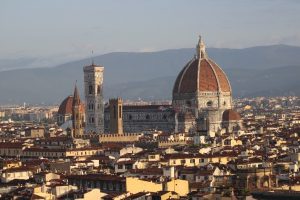 In April 2022 I had a chance to participate in the course “Successful Strategies for Teaching Students with Special Needs in Every Classroom” which took place in Florence, Italy. The training was conducted by the experienced psychologist. We were more than a dozen in the group, coming from the countries like France, Germany, Spain, Portugal, Sweden and Denmark.
In April 2022 I had a chance to participate in the course “Successful Strategies for Teaching Students with Special Needs in Every Classroom” which took place in Florence, Italy. The training was conducted by the experienced psychologist. We were more than a dozen in the group, coming from the countries like France, Germany, Spain, Portugal, Sweden and Denmark.
For the whole week we have been participated in different activities including lectures, discussions, brainstorming and case studies concerning teaching and assessment methods, strategies, and tools to address the distinctive learning needs of students with special educational needs.
We gained a greater insight into issues regarding teaching and learning in special, integration, and inclusion settings, all while identifying the barriers and the necessary resources for successfully addressing students’ learning educational needs in effective ways.
The course provided us an ideal opportunity to deepen our knowledge in terms of:
- recognizing students’ special needs (autism spectrum disorder, attention deficit/ hyperactivity disorder, emotional and behavioral disorders, intellect and/or developmental delay, physical impairment or intellectual disabilities);
- identifying and assessing students with special needs;
- designing differentiated activities to access general curriculum;
- applying teaching methods and strategies to deliver individual educational plan goals and objectives;
- using ICT tools to support all learners;
- professional and home – school collaboration.
The course was intensive, but at the same time very interesting and allowed us all to gain new knowledge and competences. What is even more important, we could meet the teachers from other countries and exchange our experiences and good practices. It was also great opportunity to improve language and inter-cultural skills and develop some other soft skills.
Anna Kucharska
Last april, from the 3rd till the 9th, the four of us, Andrea, Jaana, Karine and Gunter, 4 beautiful people, went on an Erasmus formation in one of the most beautiful cities of Europe : Firenze ! We met people from Greece ( Rhodos ), Germany, Croatia, Finland, Spain and of course our lovable Italian trainer, Layla, who taught us much more than theory.
You can imagine the subject of our course when you’ve read this first sentence : Design the positive. Positive communication and positive school spaces.
The main points were positive psychology, think flourish. Among others, we discussed some psychologists and their models, e.g. Martin Seligman with the PERMA model. P = positive emotions, E = engagement R = relationships M = mental health A = achievement.
Because we all had and have a lot of positive things in our lives, it is important to be aware of that.
We learned how to booster flow and engagement, by choosing activities you like doing, set yourself challenging goals, make it fun, foster deep concentration and minimize distractions, set clear objectives to complete tasks and… ask for support if you need it !
As educators, we read, heard and learned about positive education, with their vocabulary of emotions. We needed empathy and self-awareness to achieve it more easily. Stay present for your kids, family, friends.
Another part discussed about mindfulness, a subject that may be considered as boring or nonsense, but after some exercises, everybody was enthusiastic about its advantages.
Teachers stress and burn-out, how to avoid, to manage… a very interesting experience.
Let’s say that our group managed very well, because after only one hour, it was no more a group, but a real team. Was it the little Italian ristretto, the lovable pasta or the exciting disco night ?
Still now, we have contacts all over Europe through our Whatsapp group, with lots of information, exchanging documents, ideas and summer feelings.
The best win of this week was actually the meeting of 4 people from our own school, who didn’t know each other before, because from different buildings : nursery, primary, secondary. We created short cuts, broke the walls between different levels of school. We enjoy now talking with new colleagues, eating together, spreading the great message of Erasmus+ and the European spirit too.
So please, feel free to join these adventures together and get more information to spread the word and the practice of being positive in life !
Andrea, Jaana, Karine and Gunter
Malta
Stage pédagogique sur la dyslexie et les troubles associés
Ce stage nous a permis de travailler en profondeur sur les troubles d’apprentissages liés à la dyslexie pour mieux les définir et les distinguer.
Ce parcours de formation nous a également aider à clarifier les mesures à mettre en place pour optimiser les apprentissages quand un élève présente ce type de trouble.
Cette expérience à Malte a également permis aux collègues des différents cycles de se rencontrer, de construire de liens amicaux autour de sorties variées pour découvrir l’île de Malte et ses environs.
Liesbet Booghmans, Monica Perez, Carine Heuzé, Magdalena Rodzinka, Nathalie José, Frédérique Duchesne, Danny Schoen, Florence Delenclos
Athens
INSTRUCTIONAL STRATEGIES TO ADDRESS THE DIVERSE NEEDS OF ALL STUDENTS
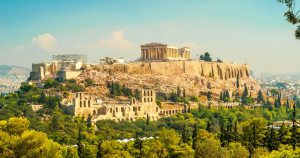
More than 2000 years after the great philosophers, nowadays’ teachers are faced with diverse learning needs. During the course we got an in-depth vision on what inclusion means and how the Universal Design for Learning (UDL) framework aims to ensure all students have full access to educational resources, regardless of their needs and abilities. In terms of instructional design, differentiation was discussed by multiple examples from the participants’ experiences.
To spend a week in Athens, somehow the cradle of European education, was a very rewarding experience: to re-think your daily practice with colleagues (teachers/directors/special needs coordinators) coming from Portugal, Denmark, Belgium and Greece, is an intense but very useful exercise ! To see how other schools and systems deal with this challenge, gives inspiration.
The most interesting were the discussions ‘directly from the schools’: what works, what failed, how can practise be matched to the theory ..
And of course… Athens is just a most interesting city to have a stroll in the evenings: living history wherever you look, lovely food, nice people, Mediterranean atmosphere …
Could not recommend more this whole experience !
Sofie De Coster
Job-Shadowing in Härnösand (Sweden)
After a wonderful stopover in Sweden`s capital Stockholm with our first FIKA, we took the train 420 km north to reach the cosy and relaxing city ‘Härnösand’, surrounded by a wonderful landscape. The 25.000 habitants have the opportunity to go skiing, fishing, curling, playing football, handball and bandy.
At school we were warmly welcomed by the headmaster – Eric and the Erasmus coordinator – Marie, who planned our week and showed us around the region. Both even invited us at their house for traditional Swedish dinner. We were also impressed by the pupils and all the colleagues being very welcoming and letting us feel like a part of them. The teacher’s room with two sofas was a comfortable place for exchanging ideas, chatting, FIKA and teacher´s afterwork on Friday. They were very curious to learn more about our European school system and would like to continue our exchange by visiting Luxembourg.
We had the possibility to visit many different classes and subjects. Marie even arranged for us to see sport lessons, visit the primary school, an autism-class, a special-needs class with low IQs and attend the national test. Besides, we had exchange-meetings with the headmaster, the assistants and the health-care-team.
A great example of promoting wellbeing is that the school does not only care about the pupil’s learning, but also about their health (social, mental, physical). The student ’health care’ system is built out of different stakeholders and focuses on prevention and intervention. They support the pupils, the teachers and assistance, but also the parents. If there are any issues, the school provides a clear inclusion checklist that needs to be followed. Additionally, each grade is provided with different health-topics for prevention.
All in all, we were impressed by the friendly and welcoming atmosphere, the sports facilities, the organisation of the canteen, the support for exchange-programmes and the balance between learning and health. On the last day we had the chance to discuss about our experience with Marie and Eric and eating the traditional princess-cake.
We would like to thank our Erasmus-Team and the Erasmus-Team of Härnösand to make this job-shadowing possible.
Nordine Zitouni, Anna Manolaki, Carolin Hartlieb
Barcelona
Erasmus+ : A European School for all Children
7-11 March 2022
The topic of this course was “inclusion”, which was exactly what was discussed during those five days.
I was the only participant from ES Lux I. Apart from me, five teachers from Rumania and four from Croatia + 1 Italian lady participated. Most of the teachers taught at a primary school. Only myself and two other people taught in secondary school.
We started by defining what inclusion actually is: it’s not diversifying by putting pupils separately, so that they can learn at their own pace. It’s a lot more about “blending in” with the others and encouraging one pupil to help another one by using each other’s strengths and understanding how the other “ticks”.
I was very happy to see that the tools we learnt and practised were exactly meant to help us with that. For example, “Plickr” makes it possible for a teacher to evaluate the pupils discreetly. Other tools, like e.g. “the Hat” or “the Hand” are meant to get to know each other better and are therefore perfect tools for team building, understanding the others and in classes like Ethics.
The great thing was that we were asked to prepare a lesson we would actually organise in our own school and in which we had to use one or more of the tools we learnt. That turned the course into a very hands-on event- not just a collection of slides and theoretical blabla but actually very practical and useful.
The objective of Erasmus + (embracing the European spirit by spending time with colleagues from other countries, exchanging experience and learning from and with each other) was definitely encouraged by the organisation. E.g. “PenPals” was presented as a means for students to get in touch with students abroad, i.e. the students of the Erasmus +-participants.
However, I think it was a pity that a few teachers hardly spoke any English and could therefore not actively participate in the discussions. Furthermore, it would have been more interesting to have fewer people from the same school attending. Being alone forces you to hang out with the other participants, which you are less likely to do if you’re attending with three or four of your own colleagues.
But in general, this course was really inspiring and a fantastic experience. I can only encourage other colleagues to attend if they have the chance. I’m very grateful and at the same time, I feel that both my students and the school benefit from the things I learnt in Barcelona.
Marianne De Grave
Well-being and Digitalization (2022-2024)
To be published
Activities
Kick-off
On 15 March 2020, the kick-off of our school’s Erasmus+ project took place. This was the official kick-off and the first meeting between the participating colleagues from primary and secondary schools. The project runs from December 2020 to December 2022 and will allow a total of 40 colleagues to follow courses in different European countries.
The project is entitled “Towards an inclusive European school”. With this Erasmus+ project, we hope to integrate the pupils even better and create a school climate for each of them where they feel comfortable and welcome. The courses offer a wide range of topics, but mainly focus on: teachers’ mastery of various didactic tools, improving the well-being of pupils and teachers, detecting learning difficulties and how to deal with them in the classroom, improving contacts between different parties (parents, psychologists, teachers, etc.).
In this way we hope to further professionalise our working environment. The atmosphere and the enthusiasm of the launch evening were already a success. The first colleagues will leave in October next school year.
To be continued!
Pedagogical day
To be published
Erasmus+ Kaffee
To be published
Your own Erasmus+ program?
To be published

